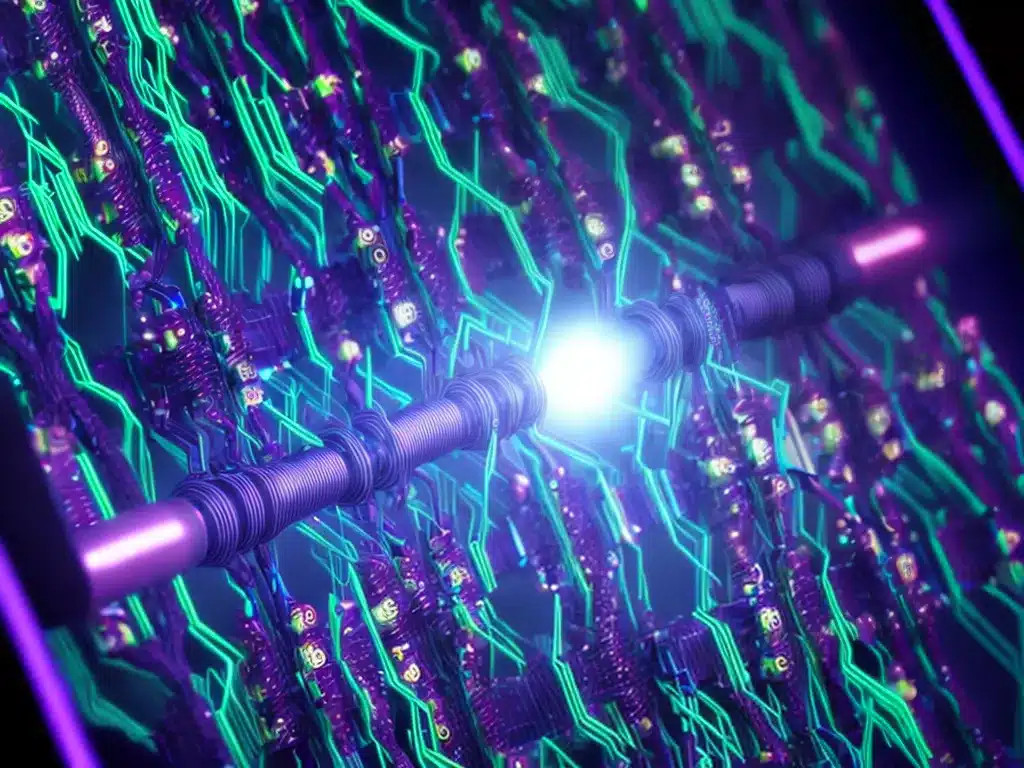
Quantum computers are an exciting new computing paradigm that leverage the strange properties of quantum physics to perform calculations in fundamentally different ways than traditional computers. Supercomputers, on the other hand, represent the pinnacle of classical computing power. They achieve massive processing capabilities by networking thousands of traditional computing cores together.
While the potential of quantum computing is tremendous, it’s unlikely that quantum computers will outright replace traditional supercomputers in the foreseeable future. Here’s why:
Different Strengths and Applications
Quantum computers excel at very specific types of problems like optimization, simulation, and factorization. Their quantum bits (qubits) allow them to represent and evaluate many potential solutions simultaneously. This gives them an advantage over traditional computers for a select subset of complex computing challenges.
However, for many other computing tasks, traditional supercomputers still reign supreme. Their sheer computing power, massive memory, and refined programming allow them to tackle huge datasets and simulations beyond the current capability of quantum systems.
In short, quantum computers will augment (not replace) classical supercomputers by solving problems inefficient on traditional systems. The two will likely co-exist for different applications.
Quantum Supremacy vs Practical Applications
In 2019, Google announced its quantum processor Sycamore had achieved “quantum supremacy” by performing a calculation in 200 seconds that would take a supercomputer 10,000 years. This demonstrated the potential of quantum computers to outperform classical systems.
However, Sycamore was a proof-of-concept on a narrowly defined test. Practical applications of quantum computing are still limited by factors like:
- Small qubit counts – Existing quantum processors only have 50-100 qubits. Useful applications may require millions.
- Error rates – Qubits are fragile and prone to errors that accumulate during computation.
- Readout delays – Reading out qubit states introduces delays that restrict performance.
So while we’ve passed quantum supremacy milestones, there’s still a long road ahead to build fault-tolerant quantum systems that solve real-world problems better than supercomputers.
Challenges in Programming and Integration
Another key consideration is that programming quantum computers requires a completely different development paradigm than traditional programming. Quantum algorithms rely on principles like superposition, entanglement, and interference.
Integrating quantum processors with existing computing infrastructure is also challenging. Traditional software and data formats are designed for classical systems.
Supercomputers have decades of software, applications, and developer tools built around them. It will take major investment and coordinated effort from industry to integrate quantum computing on a large scale.
Quantum Computing As an Accelerator
A more likely scenario than outright displacement is quantum computers acting as co-processors or accelerators for supercomputers, each handling the tasks they’re specialized for.
Google and NASA are already investigating integrating the D-Wave quantum annealing computer as a service in NASA’s supercomputing facility to boost performance on optimization problems.
With quantum and classical systems integrated, complex problems could be broken into components, with each system handling the parts it’s most efficient at.
Conclusion
In summary, while quantum computing holds immense promise, replacing traditional supercomputers completely is likely unrealistic in the near future. However, as the technology matures, we will see quantum systems integrated as accelerators for supercomputers, combining the best of both worlds. The next decade will be an exciting time as quantum research continues transitioning from pure science into practical computing advancements.












